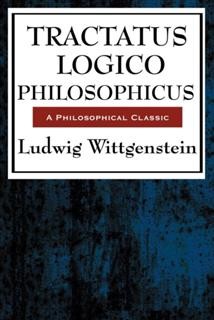
Read in our apps:
iOS
·Android
Tractatus Logico-Philosophicus (with linked TOC)
- Etna Alvaradohas quoted2 years agoWhat can be said at all can be said clearly; and whereof one cannot speak thereof one must be silent.
- Jan Nohas quoted7 years agowhenever a question can be decided by logic at all it must be possible to decide it without more ado.
- Jan Nohas quoted7 years agoIndeed a composite soul would no longer be a soul.
- Jan Nohas quoted7 years ago5.5421 This shows too that there is no such thing as the soul—the subject, etc.—as it is conceived in the superficial psychology of the present day.
- Jan Nohas quoted7 years ago5.542 It is clear, however, that ‘A believes that p’, ‘A has the thought p’, and ‘A says p’ are of the form ‘”p” says p’: and this does not involve a correlation of a fact with an object, but rather the correlation of facts by means of the correlation of their objects.
- Jan Nohas quoted7 years ago5.473 Logic must look after itself.
- Jan Nohas quoted7 years ago5.4611 Signs for logical operations are punctuation-marks,
- Jan Nohas quoted7 years agoThere are no numbers.
- Дмитрий Кувшиновhas quoted7 years agonothing correct can be said in philosophy. Every philosophical proposition is bad grammar, and the best that we can hope to achieve by philosophical discussion is to lead people to see that philosophical discussion is a mistake.
- Дмитрий Кувшиновhas quoted7 years agoMr Wittgenstein begins his theory of Symbolism with the statement (2.1): “We make to ourselves pictures of facts.” A picture, he says, is a model of the reality, and to the objects in the reality correspond the elements of the picture: the picture itself is a fact.
fb2epub
Drag & drop your files
(not more than 5 at once)

